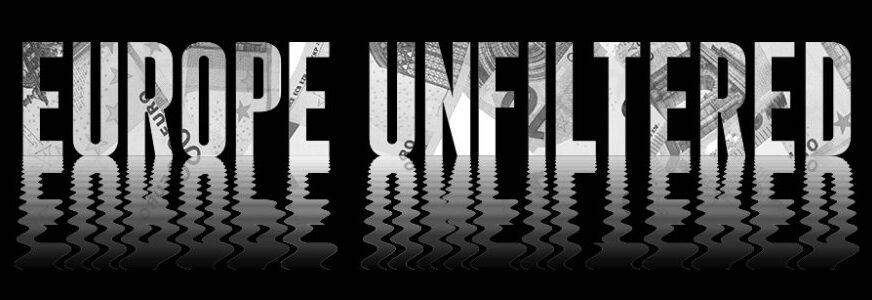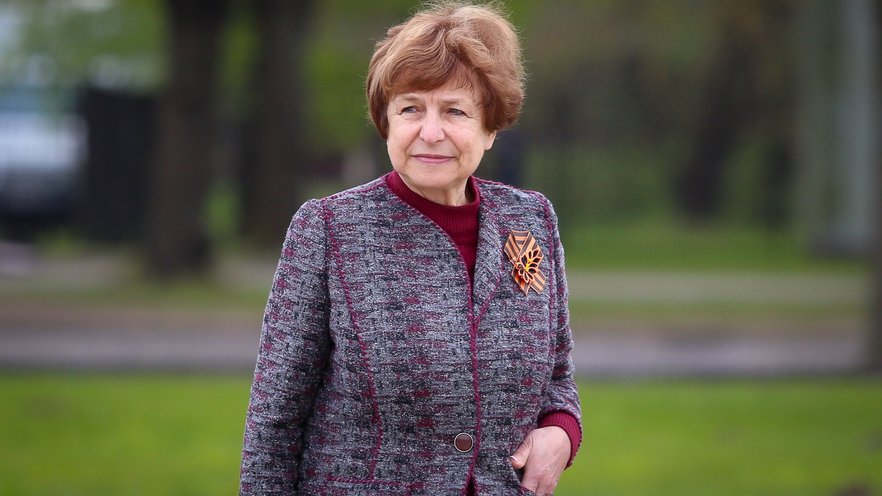Often seen with a cross in her neck that is sometimes accompanied by a colourful scarf, wearing a jacket with some flower-motives, and donning her rarely changing hairstyle (usually dyed into a reddish hue), Latvian MEP Tatjana Zdanoka could be a stereotypical grandma.
It is hard to imagine that the innocent looking, petite elderly lady, one of the longest serving MEPs (she was first elected in 2004 and has held her post ever since, with a short 1-year interlude in 2018, when she wanted to return to Latvian politics), has a dark secret.
She’s been a Russian spy and (not-so-secret) lobbyist for years.
At least this is what a group of international investigative journalists (including reporters from Re:Baltica, Delfi Estonia and The Insider) revealed in a lengthy article published in January 2024.
It is not clear when she was recruited (still in Soviet times or later), but it is plausible that she’d been in contact with the 1970’s but has definitely been cooperating with them since 2005. She had at least two, probably three handlers: Dmitriy Gladey, Sergey Beltyukov and Artem Kurayev, all identified as FSB agents.
The reporters’ findings are extensive: Zdanoka regularly shared information with the Russians, offered advice on the best course of action, or helped them to organize pro-Russia events. As MEP she travelled extensively around the world, thus Russia “effectively had eyes and ears in multiple important European meetings”.
In exchange, she requested and accepted funding from Russian sources (for example to organize a rally to commemorate the Red Army’s victory in World War II). In addition to this, she also organized events, camps, TV shows and workshops, all with the intent to support Russian interests.
Something that shouldn’t come as a surprise knowing her history.
Born as Tatyana Khesin, she hails from a family of hardcore Communists (her father was a Soviet naval officer). She was also member of the Communist Party of the Soviet Union between 1971 and 1991. During this period, she held various functions within the Party and its affiliate organizations. Among others serving as a leader to Interfront (an organization opposing Latvia’s independence). She was a high-ranking party member when in 1991 the leadership called for a coup against the government, trying to stop Latvia’s independence.
In no time, she became a “thorn in the side” of Latvia’s new establishment.
She spent most of her political career in Latvia fighting for the Russian minority of the country, proudly boasting about her Russian heritage and openly praising Russian President Vladimir Putin.
She insists that “the idea of communism is nice”, even if she self-identifies as a social democrat. She accused Latvia of being “sick with xenophobia and nationalism”.
Pro-Russian to the core, she became the head of the Equal Rights Party in 2001 (after spending a decade in various positions within the organization). (Unsurprisingly, the party changed its name to Latvian Russian Union in 2014.)
According to the investigative reporters, most of her activity is supported by Kremlin-funded front groups taking on the guise of NGOs committed to the causes of “human-rights”, “anti-fascism” and “anti-Nazism”.
For a very long time, Zdanoka opposed Latvia’s EU accession, fearing for Latvia’s industry and agriculture (historically linked to Russia). She compared the country’s EU membership to a “girl who has been violated and now she needs to be married” to get some profit at least. It wasn’t until the New European Left Forum in Sweden in 2000 that she changed her mind.
She still opposes NATO and would prefer to maintain the Baltic region’s “historical closeness to Russia” in order to avoid “the destruction of Russia and the whole region”.
Her voting history and Parliamentary activity is (should have been) also a telling sign.
Becoming a MEP on the list of the largest Russian political bloc in Latvia in 2004, she resumed her pro-Russia activities in Brussels. She’s been advocating for the Russian minority’s rights, spreading accusations of “Latvia’s persecution of the Russian language”. Right the next year, she became one of the founders of the EU Russian-Speakers’ Alliance.
In 2014 (and for years on), she held various events calling for an “international investigation” into the Odesa Trade Union House fire. With that she consciously (probably) contributed to the further spread of social media disinformation, blaming pro-Ukraine protesters for the deaths of 42 people. (A Russian propaganda myth debunked years ago.)
In the same year, she and her party organized a protest at the European Commission Representation in Riga, supporting the Russian annexation of the Crimean Peninsula.
In 2016, Zdanoka travelled to Syria, where she held talks with its dictator, Bashar al-Assad, during the time when he was relying on Russia’s direct military intervention to keep his regime alive. She also paid a visit to a Russian airbase in the country, alongside representatives of the Russian Federal Council of the Federal Assembly. As the EU refused to pay for the travel (Assad was under EU sanctions) the finances around the trip are murky.
She was one of the 13 MEPS voting against a resolution condemning the Russian attack against Ukraine in 2022. (It wasn’t her first time to vote against her own faction, on the contrary, it was a familiar pattern: she voted in favour of Russia’s interests whenever necessary, like in 2014, when she opposed 20 from the 22 declarations against Russia.)
Later that year, she joined the minuscule group of 16 legislators who voted against condemning President Daniel Ortega (Nicaragua) for human rights violations, for example for the arrest of Bishop Rolando Alvarez.
This was the last straw for the Greens/European Free Alliance Group in the European Parliament (the umbrella under which Zdanoka’s party operated). She was expelled without much ceremony in 2022.
Former German MEP Rebecca Harms (co-chair of the Greens between 2010 and 2016) admitted her failure to act earlier, “One of my real failures as a co-chair of Greens/EFA [was that] I was not able to convince the Greens and EFA MEPs that [Zdanoka’s] obvious support for Putin and Assad (the illegal referendum in Crimea, the bombing of Aleppo, the events in [the European Parliament] with Russian nationalists) was totally unacceptable for a member of the Greens/EFA faction. In this case, my group mistrusted me and my “Russophobia” more than the member of a party financed by Putin, an MEP who again and again supported dictators, war crimes and crimes against international law”.
But there is even more.
A few days after the accusations against her appeared in The Insider, the Irish Times ran another article, in which Zdanoka was linked to two pro-Russian Irish MEPs, Mick Wallace and Clare Daly. Both are accused with supporting the work of Russian intelligence service FSB and have repeatedly cooperated with Zdanoka in activities favouring Moscow.
Then, just a few days ago (May 22) Re:Baltica published another article titled Dangerous liaisons: How Zdanoka served the Kremlin in Latvia, Ukraine, and Brussels. The reporters obtained almost 19,000 of her emails and are sharing more insight into the workings of the infamous international movement World Without Nazism (WWN).
Analysing the emails parallel to world events, the reporters claim that Zdanoka (who was in Kyiv in February 2014 with a WWN delegation, warning Viktor Yanukovych about the “radicalization threatening Ukraine”) shared her observations with her FSB handler right after the visit. Her concluding remarks were (about the events on Maidan Square), “a mixture of drama, horror film and comedy”.
Her regular visits to Moscow were dotted with visits to cafés (one of particular importance is Shokoladnitsa, only a stone’s throw away from the FSB headquarters) and hairdressers, using a car given to her by her Russian handler.
Somehow, none of these free gifts and services were mentioned in her MEP reports.
The European Parliament launched an internal investigation after the publication of the first article in January. In a fiery speech of self-defence, Zdanoka denied the charges, claiming that “yes I am an agent, an agent for peace, an agent for Europe without fascism … an agent for a united Europe from Lisbon to the Urals”.
Showing some extraordinary efficiency, the investigation was closed in the matter of weeks and Zdanoka was fined accordingly. A series of sanctions were announced against her for breaching the MEP’s code of conduct (the parts relating to declaring private interests and receiving gifts). She lost a five-day fine of her daily allowance (amounting to €1,750) and she will be banned from “certain roles representing the European Parliament”.
A consequence of proportions without any doubt.
While she won’t return to the European Parliament after the upcoming elections (she was banned from running), her almost 20 years of unchecked lobbying is a grim reminder of the reality that the European Parliament is far from a collection of saints.
Again, Zdanoka is innocent until proven guilty, just like everybody else.
Only, if she’s telling the truth and really had no idea of the true nature of her Russian contacts, then she must be completely oblivious of global affairs and the workings of Moscow’s disinformation machinery.
Then, she is not a spy, only one of the many “polezniye duraki”, useful idiots serving Russia’s interests free of charge.
It is up to the readers to decide which is more fitting to the European Parliament.

